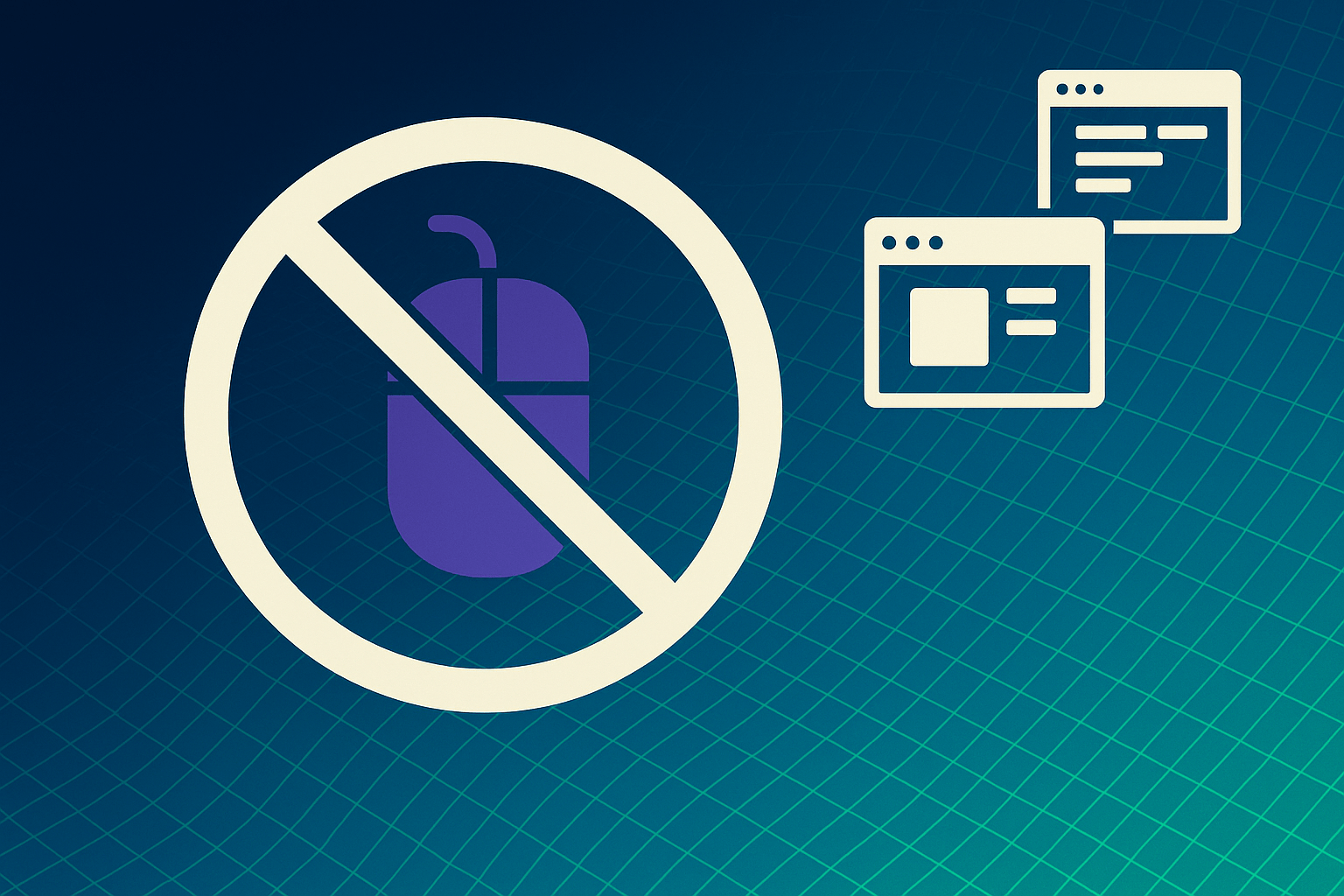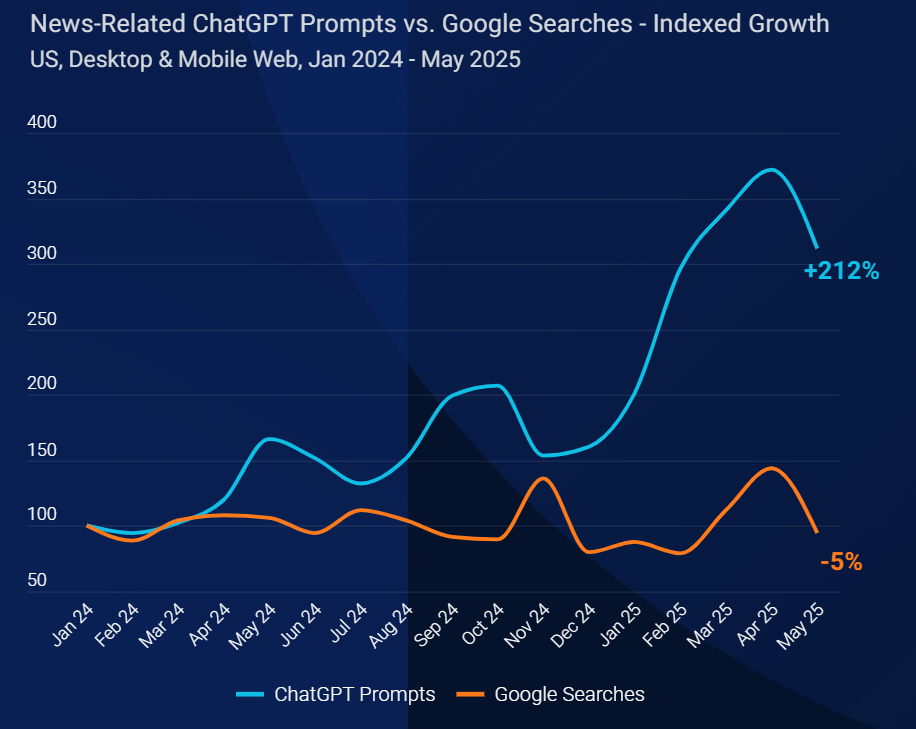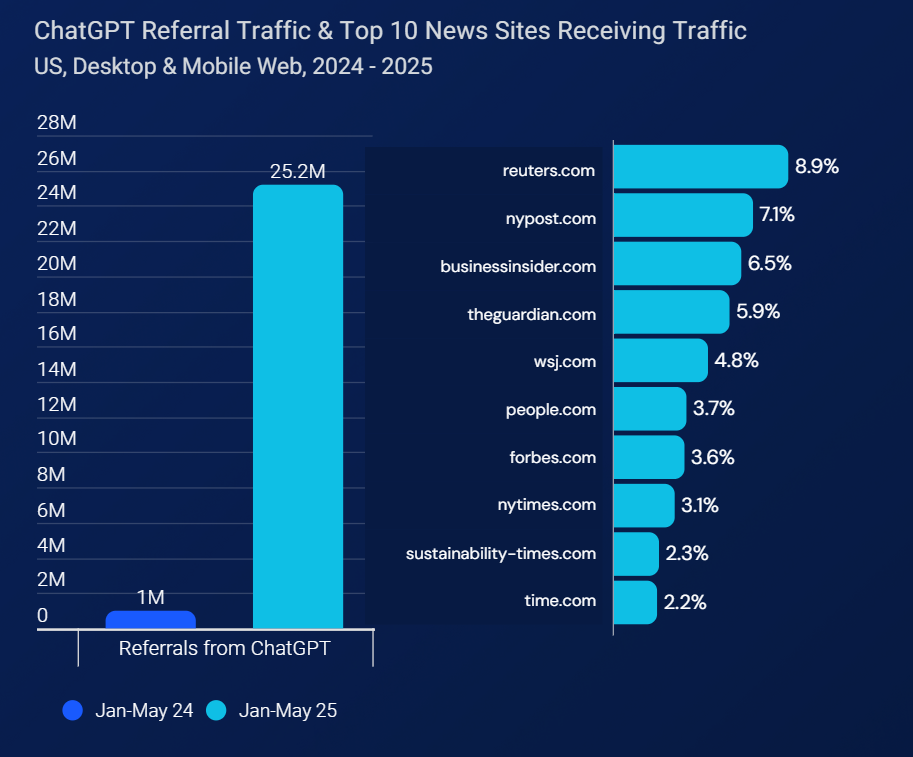ChatGPT usage for news surges as Google news searches decline

Data from Similarweb shows just how quickly ChatGPT is changing the way people get their news.
Over the past six months, the number of monthly active users on the ChatGPT app more than doubled, jumping 116% year-over-year. Web usage was up 52% during the same period.
The biggest shift is in how people access news. From January 2024 to May 2025, news-related prompts in ChatGPT soared by 212%, while comparable Google search queries dropped 5%. The trend began to accelerate in early 2025, marking a clear move toward AI-powered news consumption.
The shift is particularly evident in news access: between January 2024 and May 2025, the number of news-related prompts in ChatGPT rose by 212 percent, while comparable Google search queries fell by five percent in the same period. The trend accelerated significantly from the beginning of 2025.

According to Similarweb, most news prompts in ChatGPT still focus on real-time topics such as stocks (33%), finance (21%), sports (17%), and weather (15%). However, the platform has seen the fastest growth in prompts related to politics, along with increases in queries about inflation, the economy, climate issues, and customs duties. Similarweb interprets this as a sign that users are moving beyond just headlines and looking for more explanation and context, rather than reports on isolated events.
ChatGPT is driving a surge in traffic for select news sites
ChatGPT referrals to news publishers have skyrocketed, at least for those outlets OpenAI has chosen to work with. Traffic jumped from under one million visits between January and May 2024 to over 25 million in the same period in 2025. The biggest winners are Reuters, the New York Post, Business Insider, the Guardian, and the Wall Street Journal - some of which have exclusive partnerships with OpenAI.

But not every publisher is seeing these gains. CNN is absent from the top referral list, and the New York Times barely registers, likely because it restricts ChatGPT's access to its content. OpenAI's choice of partners is helping determine which outlets shape public opinion.
Meanwhile, Google's dominance as a news gateway is starting to decline, largely as a result of its own changes. Since rolling out AI Overviews in May 2024, the share of zero-click news searches - where users get answers without visiting news sites - climbed from 56% to 69%.
As a result, organic traffic to news publishers fell from more than 2.3 billion to under 1.7 billion visits, according to Similarweb. For many publishers, this is an existential threat, and the backlash is growing: EU publishers have started pushing back against Google's practices.
AI News Without the Hype – Curated by Humans
As a THE DECODER subscriber, you get ad-free reading, our weekly AI newsletter, the exclusive "AI Radar" Frontier Report 6× per year, access to comments, and our complete archive.
Subscribe nowAI news without the hype
Curated by humans.
- Over 20 percent launch discount.
- Read without distractions – no Google ads.
- Access to comments and community discussions.
- Weekly AI newsletter.
- 6 times a year: “AI Radar” – deep dives on key AI topics.
- Up to 25 % off on KI Pro online events.
- Access to our full ten-year archive.
- Get the latest AI news from The Decoder.